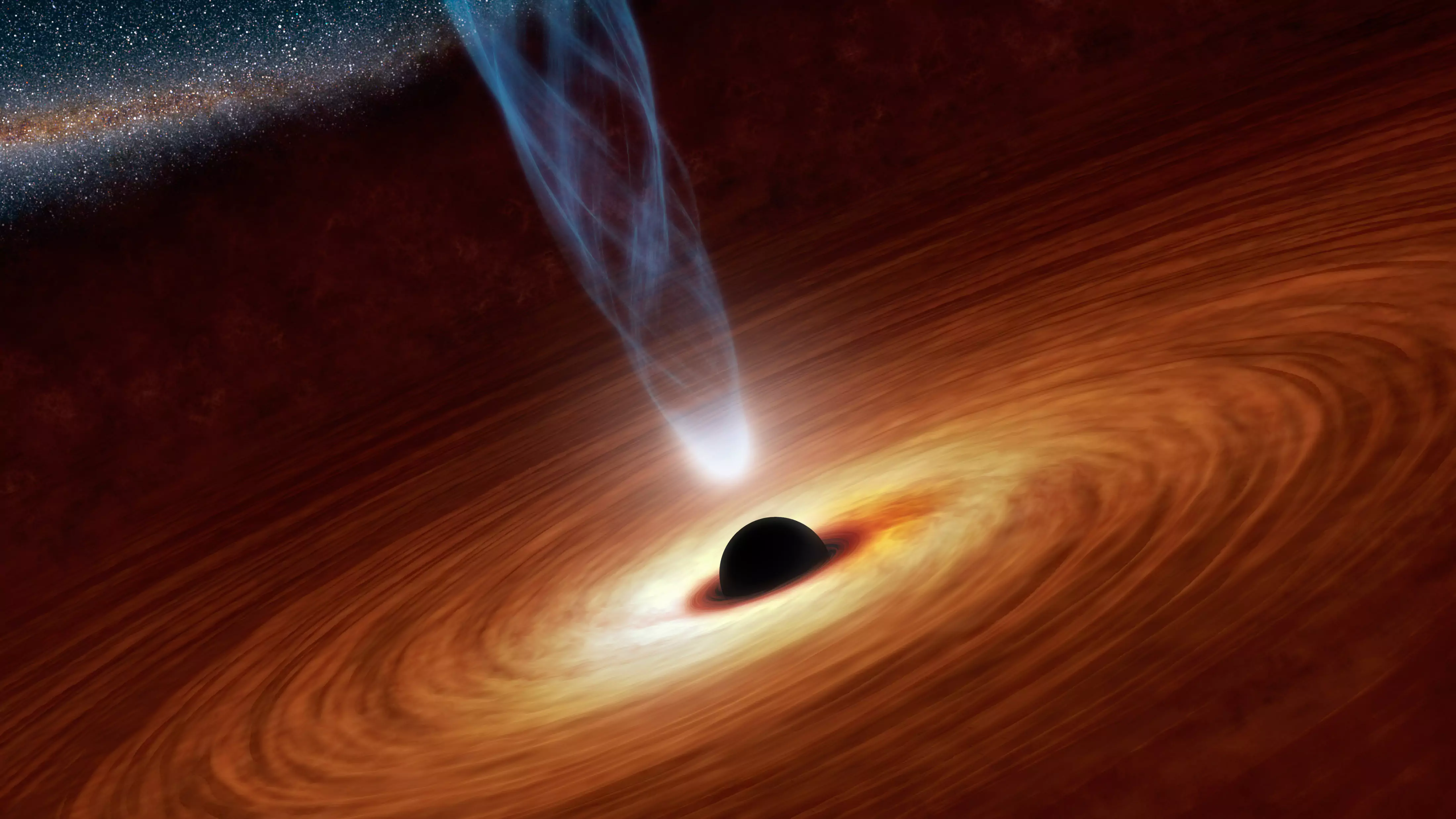 The amount of amazing scientific discoveries being made nowadays is incredibly high. Almost every day, humanity discovers something that either confirms or denies the existing understanding of the Universe. However, there still are a number of mysteries that astronomers are on the cusp of solving. Among such mysteries are black holes—being perhaps the most popular and well-known (due to mass culture) space phenomenon—which are one of the least researched.
The amount of amazing scientific discoveries being made nowadays is incredibly high. Almost every day, humanity discovers something that either confirms or denies the existing understanding of the Universe. However, there still are a number of mysteries that astronomers are on the cusp of solving. Among such mysteries are black holes—being perhaps the most popular and well-known (due to mass culture) space phenomenon—which are one of the least researched.

✅ AI Essay Writer ✅ AI Detector ✅ Plagchecker ✅ Paraphraser
✅ Summarizer ✅ Citation Generator
Generally speaking, a black hole is a space object possessing extreme density; its mass is so enormous, and the respective gravitational attraction is so powerful, that even light cannot escape its trap. This is why they are called ‘black holes’—you cannot see them without special devices, since there is no light in the point where a black hole is. The first person to have predicted this phenomena was Albert Einstein, and the term ‘black hole’ appeared in 1967, introduced by the American astronomer John Wheeler. But, only in 1971 was the first black hole discovered (Space.com).
But how do black holes appear? Science offers us the following explanation: when a large star burns the last of its ‘fuel,’ it may start collapsing under its own mass, falling in on itself until it shrinks to an object much smaller than the original star, but with the same mass—the stellar black hole (Space.com).
No one knows exactly what is going on inside black holes. A popular science-fiction topic (raised in the recent film ‘Interstellar,’ for example) refers to what happens if somebody falls into a black hole. Some believe black holes to be the predicted wormholes to other parts of the Universe. Others make less fantastic suggestions. Either way, what is truly amazing about black holes is how they distort time and space. If a person ‘falls’ into a black hole, for an outsider, the movement of this person will be slowing down, unless it finally freezes (universetoday.com). Moreover, according to Stephen Hawking, the incredible gravity of a black hole will be endlessly stretching this person in length. However, for the person ‘falling’ into a black hole, time will seem to pass as usual—and, respectively, this person will not notice any spacial distortions either.
Another popular question is, “What happens if a black hole gets too close to Earth?” Black holes do not move around space. Nothing bad will happen to Earth, because no black hole is close enough to the solar system to consume our planet. However, if theoretically a black hole, possessing the same mass as the sun, took its place, nothing would happen anyways. The same mass means the same gravity, so the planets of the Solar System would keep orbiting the black hole as if nothing had happened (nasa.gov).
Black holes are quite the space phenomenon, with its properties being mysterious. Although predicted and described a century ago, they still possess one of the biggest conundrums for scientists. Originating from collapsed stars, black holes possess such an enormous gravity that they are able to distort time and space. However, as scientists claim, Earth is not in danger—yet.
References
Redd, Nola Taylor. “What is a Black Hole?” Space.com. N.p., n.d. Web. 10 Aug. 2015.
“10 Amazing Facts about Black Holes.” Universe Today. N.p., 22 Jan. 2015. Web. 10 Aug. 2015.
Dunbar, Brian. “What is a Black Hole?” NASA. NASA, n.d. Web. 10 Aug. 2015.
Follow us on Reddit for more insights and updates.





Comments (0)
Welcome to A*Help comments!
We’re all about debate and discussion at A*Help.
We value the diverse opinions of users, so you may find points of view that you don’t agree with. And that’s cool. However, there are certain things we’re not OK with: attempts to manipulate our data in any way, for example, or the posting of discriminative, offensive, hateful, or disparaging material.